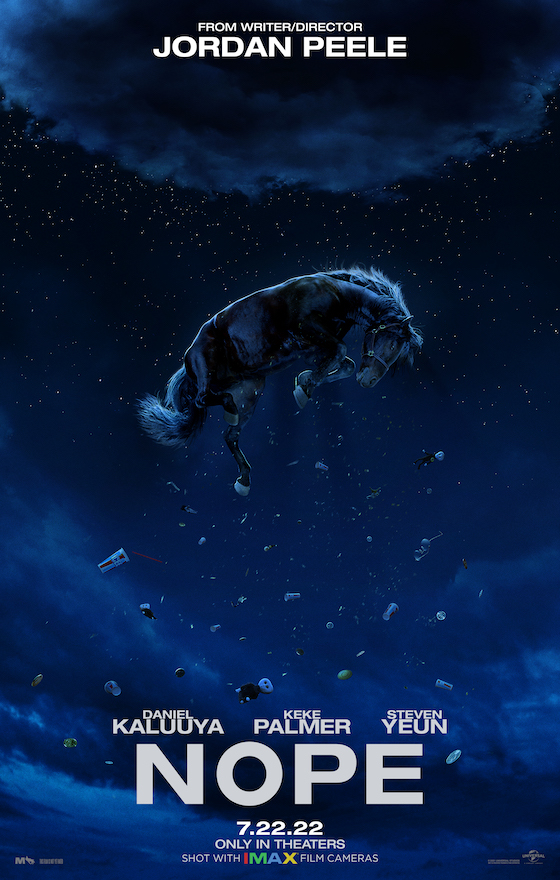UFOs, Hollywood, and cowboys: Jordan Peele creates another spectacle with the summer sensation Nope.
Deconstructing the norms of cinema, Peele’s most recent directorial work, Nope, blends the genres of horror, classic western, and science fiction into a movie that is authentically Peele. Peele brings diversity and a fresh perspective to the often repetitive genre of horror.
Peele is a budding director known for his highly psychological take on horror with blockbuster movies like Get Out and Us. Nope rolled into theaters this past July and showcased what Peele can do with a proper budget and freedom to branch out of his comfort zone.
Peele, as many may know from Key & Peele, was a well-reputed comedian before he transitioned into horror.
He had no problem with that transition, though.
Cinephile and film critic Holly Catherall shares what she thinks about Peele in the Video Librarian, “Peele’s transition into horror was so seamless because both genres operate on similar terms,” she said. “They (horror and comedy) seek to elicit visceral responses through tensions and release,” Catherall continues.
The key to being a great comedian or horror director is not the actual content, but the delivery. “Just when the audience is clawing for the tension release valve, the questions are answered,” Catherall concluded.
Peele, a master of comedy, knows just how to get the audience begging to know what’s next, whether it be a punchline or a scream-inducing twist in a story.
Beyond genre blending, Nope, alongside Peele’s earlier movies, brings diversity in its casting. The protagonists of all his movies are African-American, to a white dominated genre.
Peele brings diversity not just intellectually, but racially.
One main motif of Nope is cowboys and westerns, a machismo genre that almost exclusively stars white men. In contrast, Nope stars Daniel Kaluuya, Keke Palmer, and Steven Yeun, who are African American and Korean respectively. Such casting seems out of place because of how accustomed society is to homogeneous casting, so seeing Kaluuya and Yeun play these roles is a breath of fresh air.
Peele’s childhood as a mixed child in a predominantly white society has greatly impacted his worldview, clearly seen in his work. With a background virtually unseen in mainstream horror, Peele keeps returning with box office and critical success.
As an African American director, he is one of the most prominent directors to bring African American issues and perspective into the forefront of horror. In a genre notoriously known for portraying African Americans as the token minority dying first, this is a huge step forward.
For context on the gross lack of diversity in horror, here is a crowd voted top 50 horror directors in film history, with almost 20,000 votes casted. Of the top 50 directors there are: 5 Asians, 1 Woman, and 0 African Americans.
The rest are white men.
This makes Peele and his blistering success all the more profound. In a genre that has largely focused on the white audience, Peele proves his predecessors wrong by showing that success can be seen with uniquely African American themes at the center of focus.
Senior Charles Budan is a film enthusiast and PV Drama member. “Peele’s perspective allows him to use the horror genre to develop themes on racism and white liberalism in Get Out while simultaneously improving opportunities and representation for black actors in the horror genre with Us,” he says.
Peele is so much more than just African American themes though.
Budan continues, “Peele’s important messages and goals are supplemented by his genuine talent as a filmmaker. He has rightfully earned his following and is making efforts to improve and innovate not only the horror genre, but in the film industry as a whole.”
As Peele continues to fill theaters with hit after hit, he shares his unique perspective on society and media. Peele hoped to branch out his work with Nope, and he once again has seen great success.
Now widening his scope on film, Peele plans to change entire genres with his work, but he will never lose his signature style that has shaken Hollywood to its core.









